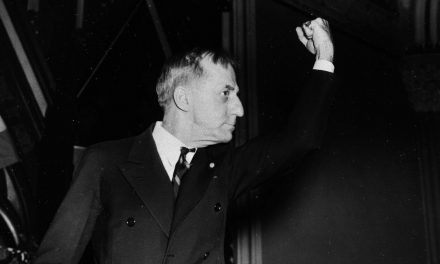The Tehran attack makes it clear: we’re on the same side as Iran against ISIS
The attacks executed by Islamic State in Tehran on 7 June, apparently perpetrated by two groups of four terrorists, cost 12 or more innocent lives. Forty or more were wounded and at a number of points (the attack on parliament, pictures of children escaping the scene) they echoed recent attacks in Europe and the UK. The scenes were similar enough on a human level to prompt recognition of the fear felt. ISIS claimed responsibility, and there is no reason to doubt this, although it’s possible some aspect of the attacks may have been facilitated by dissident groups within Iran.
ISIS has recently escalated its propaganda against Iran, lashing out as its position in the fighting in Mosul and in Syria has deteriorated. The forces that have beaten Isis back, along with western-backed elements, have substantially been fighters backed by Iran’s Revolutionary Guard – Shia militia and others. Iran’s fight with Isis is essential and inescapable; Isis has a visceral hatred of Shias, at least as great and probably greater than its hatred of the west, and the areas where Isis has tried to establish its ugly caliphate are squarely on Iran’s doorstep – not on our’s.
The attacks also come after an intensification of the level of rivalry between Iran and Saudi Arabia in the Persian Gulf region.
Contributing to this was President Donald Trump’s visit to Riyadh, where he waggled a sword, and set aside his previous hostility to praise Saudi Arabia, welcome big new arms deals, and please his hosts by repeating Saudi condemnations of Iran.
Parliament in Tehran Attacked
More recently, Saudi Arabia has cut relations with Qatar (and, it seems, road and air access), for mixed reasons that include displeasure at the Qatari stance towards Iran. Whatever we may think about Iranian democracy and its many real shortcomings, their parliament was a target for Isis, which suggests their Isis enemies, at least, take that aspect of the Islamic republic seriously.
Iran blames Donald Trump for escalating Qatar diplomatic crisis | The Independent |
- ○ Qatar: Turkish troops are en route to the embattled Gulf country
○ Taking German troops out of Incirlik: the least preferred option for NATO | DW |
Maximum Drama, Minimum Change: Iran’s Presidential Elections | The Atlantic |
“The smart way to keep people passive and obedient,” wrote Noam Chomsky, “is to strictly limit the spectrum of acceptable opinion, but allow very lively debate within that spectrum.”
Chomsky’s observation aptly captures Iran’s May 19 presidential election, which has become a two-man race between centrist incumbent President Hassan Rouhani and hardline cleric Ebrahim Raisi. Barring major fraud and popular tumult, a win for either one would be positive for 77-year-old Iranian Supreme Leader Ayatollah Ali Khamenei, who will remain the most powerful man in the country.
Read my related diary …
○ Sister Cities Paris-London-Teheran United In Grief







